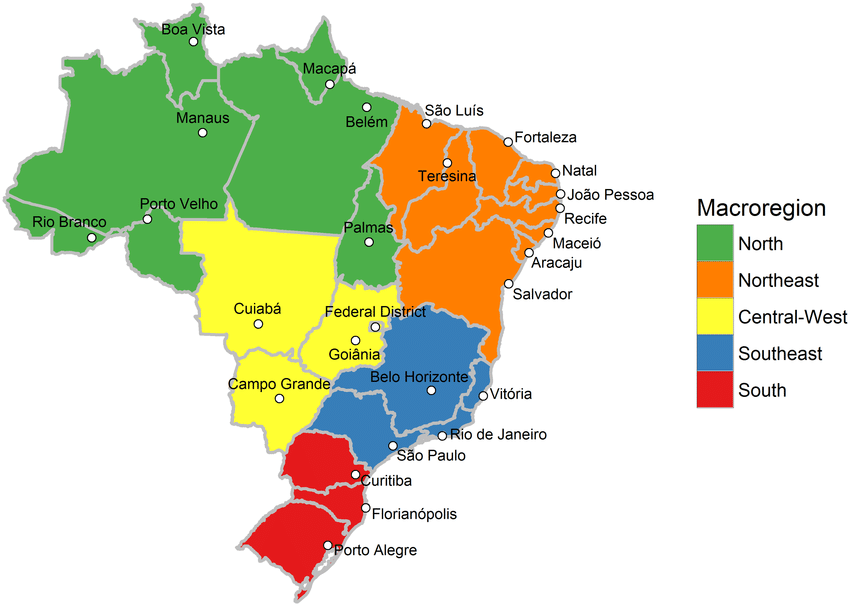RIO DE JANEIRO, BRAZIL – Less than a month after the start of vaccination, capital cities are beginning to suspend campaigns for lack of inventory. Rio de Janeiro, Salvador and Cuiabá have already announced that the first dose of the immunizer will not be administered until new deliveries come in.
In Curitiba, the city hall admits it has only enough inventory for this week. The National Mayors Front (FNP) on Tuesday, February 16th, challenged the federal government to provide a schedule for the delivery of doses.

On Monday, Rio mayor Eduardo Paes (DEM), said that due to a shortage of vaccines, the city would suspend the program for at least a week. According to the municipal government, the doses still in stock have been reserved for the second round of administration. The Municipal Health Secretariat says it has received approximately 375,000 doses and immunized 249.800 people – a figure higher than the available amount, when the second dose is considered.
“Doses from the Butantan Institute are expected to be delivered on February 23rd,” the federal government said in a statement. “The campaign is expected to be restarted next week, but the exact date is yet to be confirmed.”
In Salvador, Mayor Bruno Reis (DEM) used Twitter to announce the suspension on Tuesday. The capital will continue the administration of second doses to healthcare workers who have received the first dose until a new shipment is delivered. “They have been secured since the first distribution.”
Cuiabá is in a similar situation. On Tuesday, the capital of Mato Grosso had only 400 doses available for the first shot. Emanuel Pinheiro’s (MDB) administration has only maintained the schedule for the second dose. The Cuiabá government claims to have received 30,800 doses and immunized 23,200 people.
In Curitiba, Rafael Greca’s (DEM) administration claims to only have 1,400 doses available for the first dose. The stock would be enough to meet the vaccination schedule up to Friday.
With 73% of the target public still to be immunized, Florianópolis claims to only have 1,390 vaccines available. This amount represents half of the doses administered on February 11th. In turn, the government of Santa Catarina says that the state has not been supplied with new batches since February 7th. “At this moment the available stock is intended for the second dose,” it says.
In other capitals, vaccine stocks are also running out. Maceió, for instance, says it has already administered 20,700 of the 22,700 doses received – which represents 91%. Porto Alegre, on the other hand, says it has 11,000 immunizers in stock, but 27% of the target public is still to be vaccinated, more than 33,000 people for the first dose.
São Paulo reported the total number of people vaccinated: 394,400 were administered the first dose by Monday, February 15th. As for the second dose, the figure is 39,400. Regarding its stock, the city hall said it received 203,000 Coronavac doses from the government on January 19th: 165,300 Oxford/AstraZeneca doses on January 25th and another 203,000 Coronavac doses last week, totaling 571,300.
“There are vaccines in stock secured for the second dose of all groups covered in the first round. The portfolio is waiting for a new shipment to start the immunization of seniors aged between 80 and 84. They are scheduled to be delivered on February 27th, 2021,” it stated.
Other cities in the country are reporting depleted stocks or close to running out, according to local sources. This is the case in Rio Grande do Sul (Cachoerinha and Guaíba) and Mato Grosso (Rondonópolis, Sinop and Barra do Garças).
In São José dos Campos (SP), early vaccination for seniors over 80 has been suspended. The city hall demanded promptness from the state, which, in turn, criticized the municipality for not supplying data to quantify shipments.
Pressure and federal purchases
On Tuesday, February 16th, the National Mayors Front (FNP) released a text in which it states that “the federal government’s repeated mistakes” are directly linked to the shortage and lack of vaccine doses in cities all across Brazil. The organization’s president, Mayor Jonas Donizette of Campinas, São Paulo’s second-largest city, says mayors have done their part. “There was efficiency in the administration of vaccines, what mayors and cities proposed to do was effectively done, and at a very fast pace. Now, the Ministry of Health has to solve the shortage problem.”
The FNP is demanding that the Ministry of Health provide a schedule with fixed deadlines and goals for the vaccination of each group: by age group, the chronically ill, and professional categories. The schedule published on the Ministry of Health’s website last Tuesday shows that 10.7 million covid vaccines have been delivered to the portfolio to date. Of these, there are 8.7 million of the Coronavac, from the Butantan Institute/Sinovac, and 2 million from Oxford University/AstraZeneca.
On the other hand, the media consortium reports that 5.5 million, or 2.6% of the population, have already been administered the first dose. This, in theory, would be enough to virtually exhaust the amount of available vaccines, given that a complementary dose is required.
The interval for the Coronavac booster dose ranges between 2 to 4 weeks. The second dose of the Oxford vaccine can be administered up to three months after the first.
When asked, the Ministry said it expects to receive 9.3 million additional Coronavac doses and 4 million more of the Oxford vaccine this month. However, the precise date has not been stated. The Ministry says that it will receive another 18.1 million doses from Butantan and 23.3 million from Oxford in March – 2.65 million of which through the World Health Organization’s (W.H.O.) Covax Facility.
Under pressure, the Ministry also confirmed on Tuesday the purchase of another 54 million Coronavac doses. According to the Ministry, contracts for 10 million doses of the Russian Sputnik V and 10 million doses of the Indian Covaxin are expected to be signed this week.

